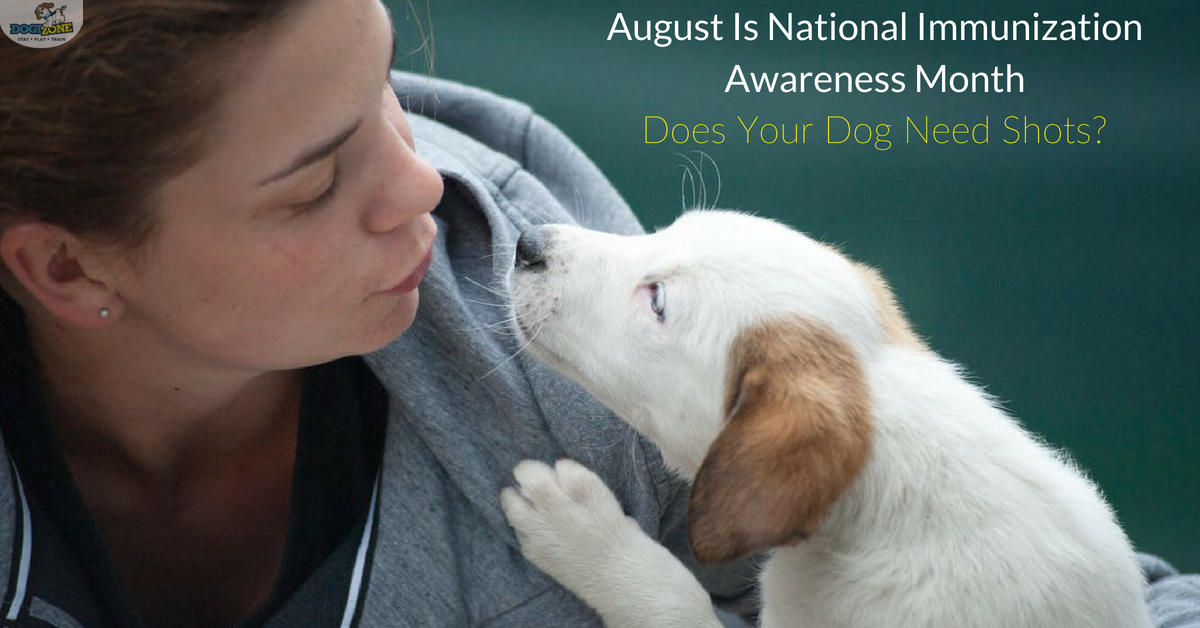August Is National Immunization Awareness Month
Does Your Dog Need Shots?

While there is always a lot of controversy in the general public about the types and frequencies of vaccinations for dogs and puppies, vets have a general agreement about the most important vaccinations for our four-legged companions.
There are some vaccinations that should be provided more than once in a pet’s life. The vaccinations include core or essential vaccinations that will be instrumental in preventing your dog from potentially developing life-threatening diseases. There will also be non-essential or elective vaccinations that are an important consideration if you are boarding your dog or if your dog has contact with lots of other dogs.
Most kennels, classes, dog groups, dog events or other types of dog-related activities will require the owners provide proof of vaccination. Dog owners who do not have this proof will not be allowed to bring their dog or to participate. Kennels, groomers and other types of dog related services will also typically require proof of vaccination.
Some of these types of non-essential vaccinations may also be recommended if you are traveling to specific locations in the country or even internationally, protecting your dog from known issues in those locations. Traveling with your dog, particularly when flying, crossing an international border or even using other types of transportation will usually require proof of current vaccinations.
Puppy and Dog Core Vaccinations
Puppies are usually vaccinated at 16 weeks or older. Depending on the vet, the puppy and other factors, these may all be provided at once, or they may be staggered. Some of the puppy vaccinations will be given in two doses, usually about a month apart.
The core vaccinations for puppies include rabies, which can be a one or three year vaccination with boosters every year, distemper, parvovirus and adenovirus type 1 and 2. These are all designed to prevent serious and life-threatening diseases that are common throughout the dog population in the USA.
At one year of age, young dogs will require a booster for parvo and distemper as well as the two adenovirus types. After this first year, depending on the type of vaccination used, the dogs may need a booster every one to three years for these vaccines.
Non-Core Vaccinations
The non-core vaccinations are often more important in specific areas. For example, the Lyme disease vaccination is very critical in some areas of the southern US but less essential in some of the northern states. In general, most of the non-core vaccinations are only recommended for dogs at high risk for coming in contact with the disease.
The most commonly recommended non-core vaccinations for dogs include the parainfluenza vaccine, Bordetella (kennel cough), canine influenza and leptospirosis. Leptospirosis will only be recommended in areas where this is a known problem.

